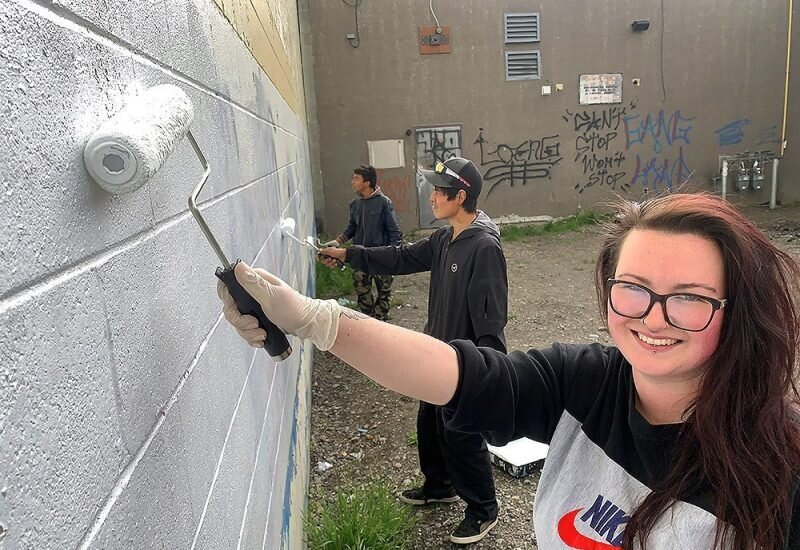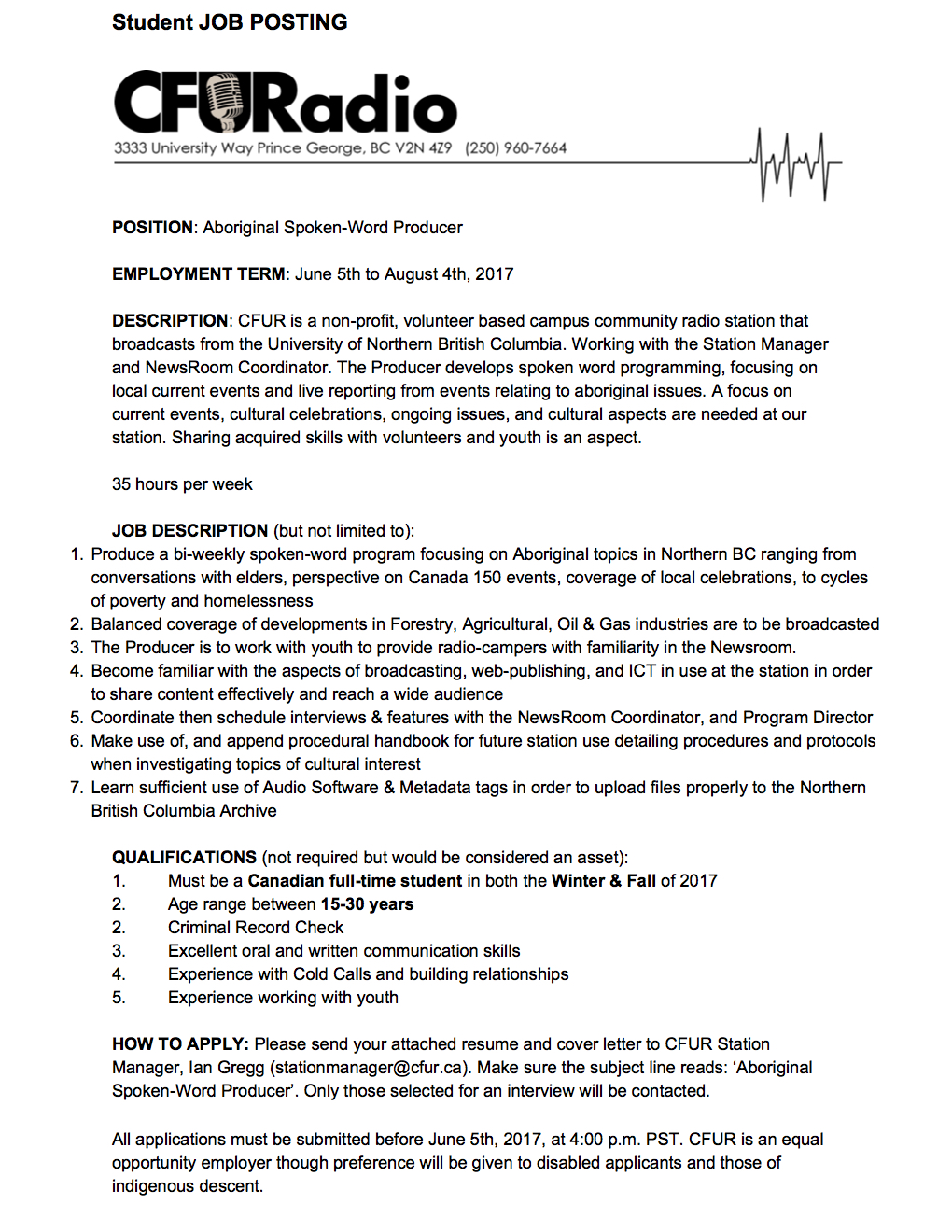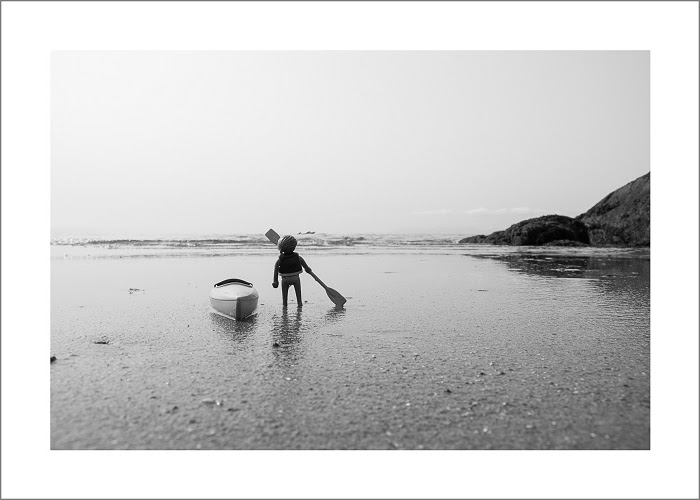Image courtesy of the City of Prince George
By Courtney Hayhurst
If you live in town, have visited an urban center lately, or frequent the downtown core in your area, you are probably familiar with some of the social issues that many towns and cities face around the world. People without homes, those who struggle with addiction, and those with mental health struggles often frequent the downtown core of communities, though their voices often go unheard. Some of the most commonly heard voices in regard to downtown areas and vulnerable populations, alternatively, are those of business owners.
A 2019 article by CBC details the perspectives of downtown business owners and their views of homeless populations. The article details comments of local business owners in Prince George and Kelowna, who fear for their safety due to discarded needles, human feces, as well as shoplifting. Many of the local business owners in the article demanded a call for immediate action to create a safer downtown core, but responses from Town Hall admitted that it is a much more complex issue. Prince George mayor Lyn Hall commented that these issues are outside of the City’s control, and that the Province of BC is experiencing an opioid crisis. While many of the local business owners are frustrated with the perceived lack of action the municipal and provincial governments are taking, the issue, as Lyn Hall said, is quite complicated.
When it comes to vulnerable communities (those who struggle with addictions, mental health, and those who struggle to maintain stable housing) the stigmas associated with them can lead to harmful outcomes and also can influence the perpetuation of behaviours associated with stigma as well. Studies have revealed that rejection, as well as the fear of rejection, can lead to coping mechanisms, such as isolation and withdrawal, that further harm the mental wellbeing of those vulnerable populations, as said by B.G. Link et al. in the Journal of Health and Science and Social behaviour 1997 publication of “On stigma and its Consequences: Evidence From a Longitudinal study of Men With Dual Diagnoses of Mental Illness and Substance Abuse”. In addition, Link et al. found in the same study that the level of stigma that is perceived by those who struggle with addictions themselves can continue even when drug use is reduced or ended, and remains strongly associated with mental health symptoms. In the article published in 1989 “Social Stigma and Self-Esteem: The Self-Protective Properties of Stigma”, authors Crocker and Major concluded that there are some emotional, psychological, and behavioural responses and strategies of stigmatized individuals that can either lessen or exacerbate the effects of stigma and discrimination.
In addition to the stigmas as perceived by vulnerable communities themselves, there is stigma placed on them from other parts of the community as well. Stigma, and discrimination because of stigma, is prevalent even in Health Care, for example. As found by Muncan et al. in the 2020 publication of “‘They look at us like junkies’: Influences of Drug Use Stigma on the Healthcare Engagement of People who Inject Drugs in New York City”, those who struggle with addiction are often dismissed and discriminated against in hospitals and clinics, even when they are hoping for treatment for non-drug-related injuries and illnesses.
Muncan’s et al. study found that “Of the 32 participants, 23 (71.9%) reported some form of enacted drug use stigma including, but not limited to, discrimination (i.e., being treated negatively as a reaction to injection drug use status), and dismissive attitudes of providers at hospitals and clinics”. Muncan et al. makes note that such discrimination and stigmatization of these vulnerable communities may “...discourage illicit drug users from getting health care due to fear of poor treatment by healthcare providers, or fear of trouble with the authorities”.
To provide some local context to the above studies, Jordan Harris and Sebastian Nicholson have offered their personal and professional experiences working in downtown Prince George. Jordan Harris, executive director of the POUNDs project, has extensive experience working in health care and servicing vulnerable populations. From providing safe injection sites to building programs to productively involve vulnerable citizens in the community, Jordan knows first had the types of stigmatizations and misperceptions that surround these communities. Sebastian Nicholson, Interim Education Manager of Positive Living North, has a lot of first hand experiences with these vulnerable communities as well, but Sebastian also works very closely with other businesses and organizations to help educate them about HIV/AIDS and HCV.
Both Jordan and Sebastian come from perspectives of service providers, offering support services to vulnerable populations (which includes those who struggle with addiction and mental health, as well as those who lack stable housing). Jordan, familiar with the ins and outs of offering life saving medical care, and Sebastian, as a leader in the education of sexual health and addiction, offer their informed, experienced, and empathetic perspectives on downtown Prince George, and what needs to happen to create safer spaces for everyone in the community.
Jordan Harris, Interview Date October 7, 2020
Sebastian Nicholson, Interview Date October 28, 2020
Works Cited:
Crocker, Jennifer and Brenda Major. “Social Stigma and Self-Esteem: The Self-Protective Properties of Stigma”. Psychological Review, vol. 96, no. 4, 1989, pp. 608-630.
Link B.G., E.L. Struening, M. Rahav, J.C. Phelan, and L. Nuttbrock. “On stigma and its Consequences: Evidence From a Longitudinal Study of Men With Dual Diagnoses of Mental Illness and Substance Abuse”. Journal of Health and Social Behavior, vol. 38, no. 2, 1997, pp. 177–190.
Muncan, Brandon, Susan Walters, Jerel Ezell and Danielle Ompad. “ ‘They Look at us Like Junkies’: Influences of Drug Use Stigma on the Healthcare Engagement of People Who Inject Drugs in New York City”. Harm Reduction Journal, vol. 17, no. 53, 2020.







